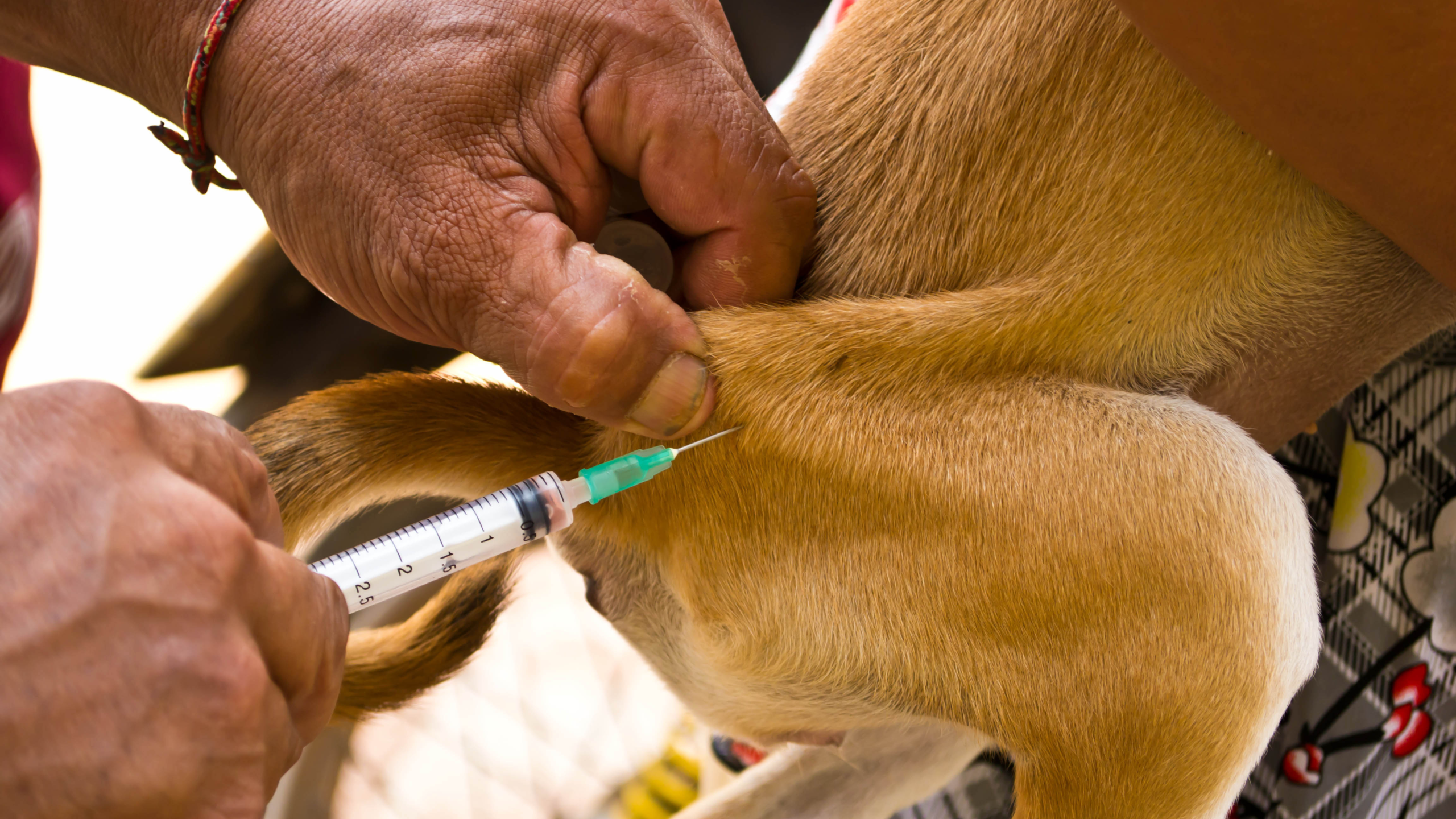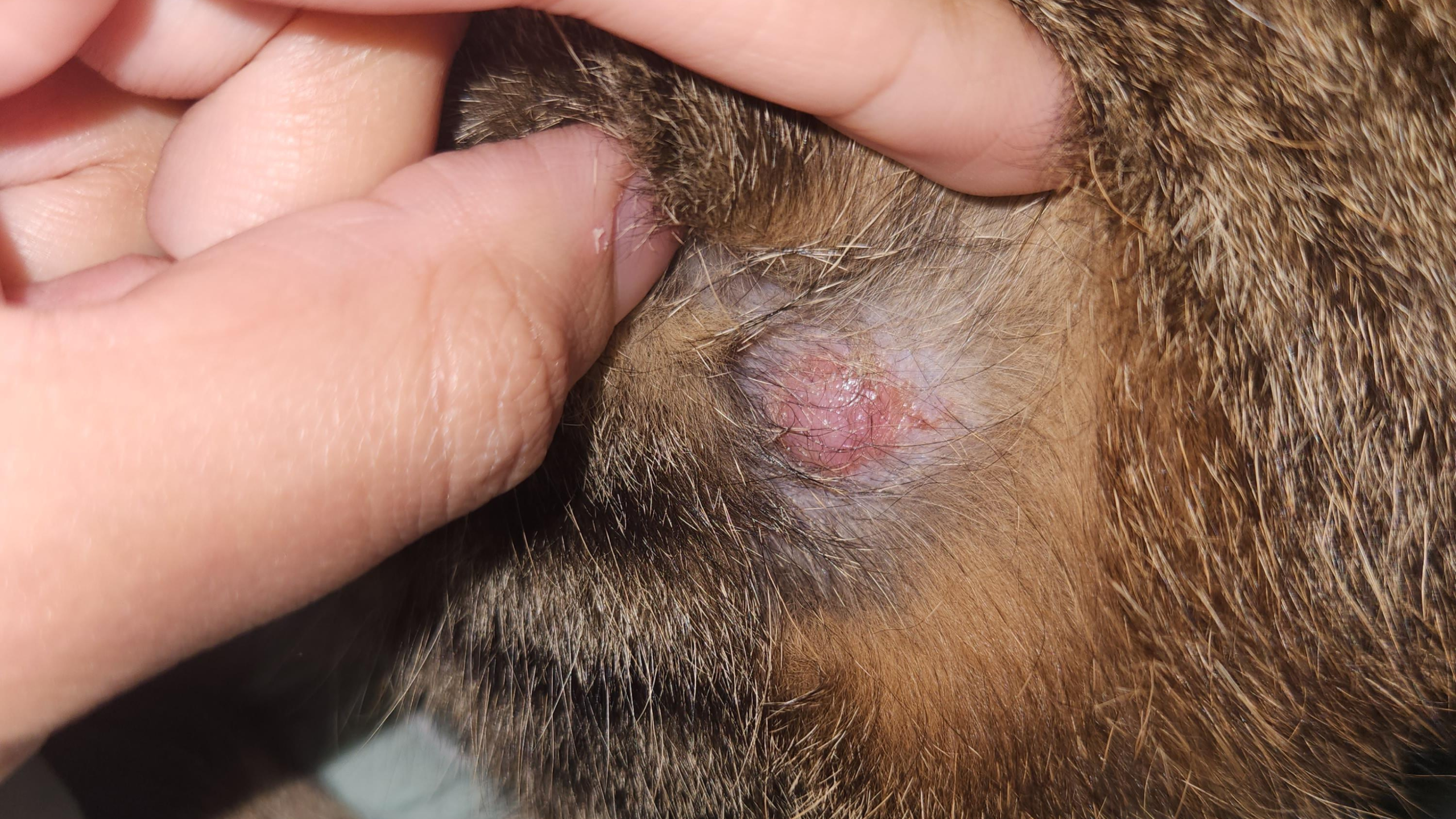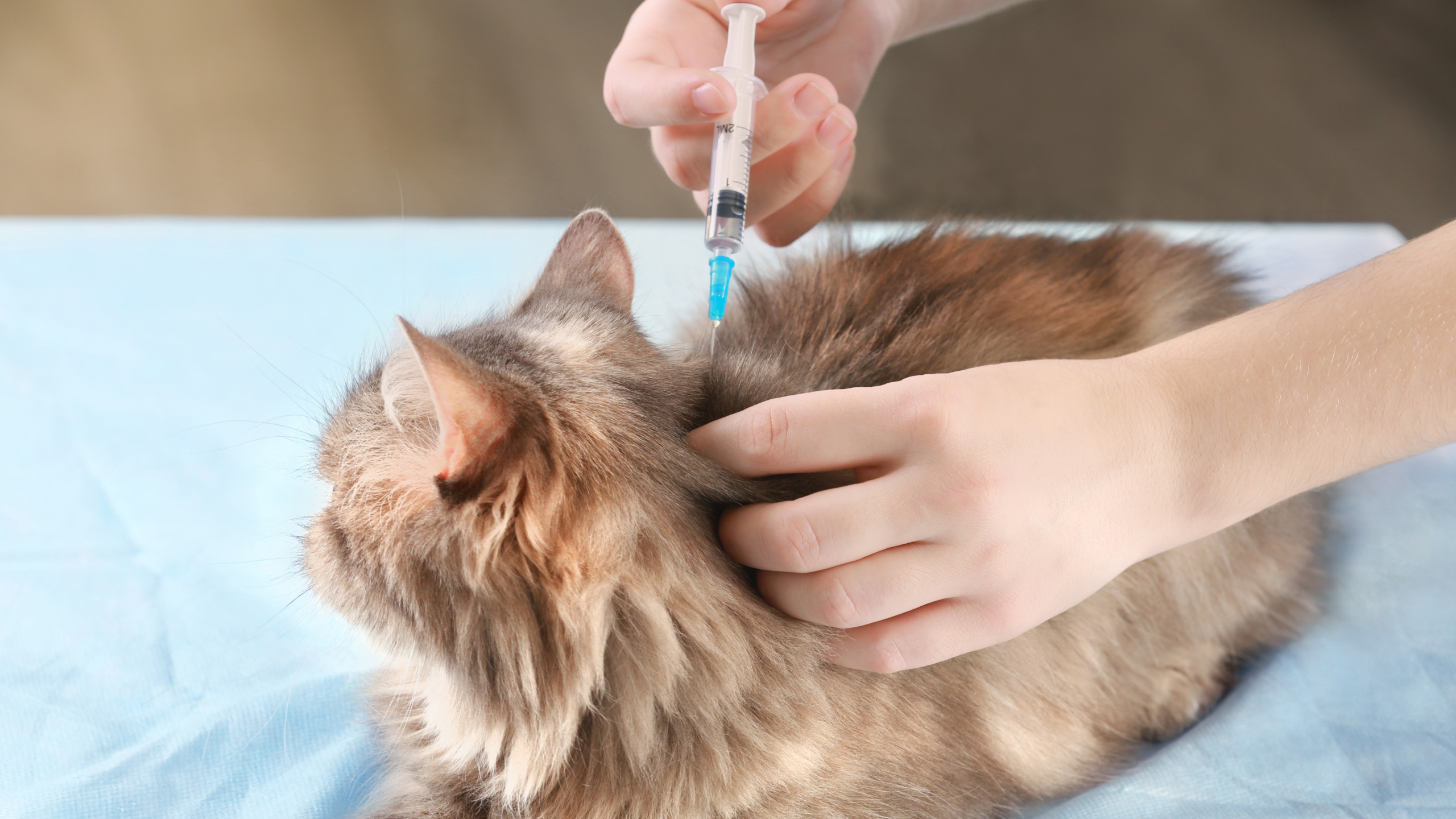Can Pet Vaccines Cause Cancer? Dr. Jones Explains
![]()
Why Choose Dr. Jones’ Ultimate Canine Health Formula for Your Dog?
Dr. Jones’ Ultimate Canine Health Formula is the ideal choice for pet owners who want to support their dog’s overall health and well-being. This comprehensive, all-natural formula promotes a variety of key benefits that will enhance your dog’s quality of life. It supports mobility and joint comfort, ensuring your dog can move freely and comfortably, whether climbing stairs or hopping into the car. The formula also boosts vitality and energy levels, helping your dog stay active and playful.

Why Choose Dr. Jones’ Ultimate Feline for Your Cat?
Dr. Jones’ Ultimate Feline is specially designed to support your cat’s overall health, ensuring they live a long, happy, and active life. This holistic formula works in several ways to improve your cat’s well-being. It alleviates recurrent episodes of diarrhea and vomiting, supports digestive health, and promotes healthy mobility and joint function, especially important for aging cats. This formula offers safe, supportive care, helping to manage aging symptoms. Dr. Jones’ Ultimate Feline is a must-have for your cat’s long-term health and happiness.


Do Vaccines Cause Cancer in Pets? Here’s What You Need to Know
I’ve been getting a lot of questions lately about whether there’s a connection between vaccines and cancer in dogs and cats. This is an important topic, and I want to give you the most straightforward and accurate information I can. So, let’s dive into it!
Is There a Link Between Vaccines and Cancer?
You might have heard the news about outbreaks of diseases like measles and the lower vaccination rates in some parts of Canada and the U.S. Public health officials keep telling us that vaccines are safe and crucial for protection—and they’re right in most cases. But when it comes to our dogs and cats, things get a little more complicated.
If you’ve ever wondered whether repeated vaccinations increase the risk of cancer in your pets, the answer is a bit mixed. Some studies and well-known veterinary sites argue that there is no direct link between vaccines and cancer in pets. However, there is some concern when it comes to cats, specifically a type of cancer called Vaccine-Associated Sarcoma (VAS).
What is Vaccine-Associated Sarcoma (VAS)?
VAS is a rare but serious type of cancer that can occur at the site of a vaccine injection. It’s most often linked to the rabies vaccine, usually given between the shoulder blades. The incidence of VAS in cats is quite low—somewhere between 1 and 3 cases per 10,000 cats. That’s about 0.03%, which seems like a minimal risk. However, the cancer starts with a strong reaction to the vaccine, causing inflammation that can eventually lead to cancer.
Interestingly, this type of cancer does happen in dogs too, though less frequently. The statistics show a rate between 1 and 10,000 dogs, so the risk is still low—less than 0.1%. Some dog breeds, like Golden Retrievers and Boxers, seem to be at a slightly higher risk.
Vaccines and Cancer: What Does the Science Say?
It’s true that cancer is very common in dogs, especially as they age. In fact, around 50% of dogs over the age of 10 will develop cancer. And we’re seeing it in younger dogs too, which suggests there might be a growing environmental factor at play.
Could vaccines be one of those factors? Well, there are many things that can increase the likelihood of cancer, like genetics, early spaying or neutering, toxins in food, environmental pollutants, and chemicals like pesticides that your dog might walk through. But chronic inflammation is also a major contributor to cancer development, and vaccines could play a role in this.
Chronic Inflammation and Cancer
When your dog or cat gets a vaccine, their immune system responds with short-term inflammation to protect them. This type of inflammation is necessary for healing and defense. However, chronic inflammation—when the immune system keeps reacting over time—can be problematic.
If your pet is exposed to allergens, gets repeated injections of antigens (like in vaccines), or has unresolved immune reactions, the inflammation can persist. Over time, this can create the ideal conditions for cancer to develop. Inflammatory cells can damage DNA, leading to mutations and uncontrolled cell growth, which is the hallmark of cancer.
Is Chronic Inflammation Dangerous?
Chronic inflammation isn’t just uncomfortable for your pet—it can be dangerous. It sets up an environment where cancer cells can thrive. In the case of VAS, repeated injections at the same site could cause chronic inflammation that eventually leads to this specific type of cancer.
So, does this mean we should stop vaccinating our pets? Not at all. Vaccines are critical for protecting against serious diseases. But it does mean we need to be careful about how often and when we vaccinate.
How to Approach Vaccination in Dogs and Cats
Here’s how I approach vaccines for my pets: I believe in a moderate and minimal vaccination schedule, especially after the first few rounds of shots. For example:
-
Puppies and kittens should receive their vaccines at 8 weeks and 12 weeks.
-
Rabies vaccines are important, but I’d only administer them if rabies is a concern in my area—typically at 6 months.
-
After the initial vaccinations, I’d consider titer testing a year later to check if my pet still has immunity. This way, I wouldn’t be giving unnecessary booster shots.
By using this approach, we can reduce the risk of chronic inflammation while still protecting our pets from serious infections.
Cancer is Multifactorial
Cancer doesn’t have just one cause. It’s influenced by many factors, including genetics, environment, and lifestyle. While vaccines could play a small role, they’re not the sole factor. As pet owners, we need to be proactive and minimize potential cancer risks, such as avoiding exposure to toxins and reducing unnecessary medications.
If you can make even a few changes—like modifying your pet’s diet or being more mindful about their vaccine schedule—you could significantly lower their risk of developing cancer. I’ve seen so many pets who’ve been diagnosed with cancer, and I believe that making smarter choices along the way can have a big impact on their health.
The Bottom Line: Vaccines and Cancer
So, should you be concerned about vaccines and cancer? Yes, but not in the way you might think. While there is a slight risk associated with vaccines, the benefits of vaccination far outweigh the risks. The key is moderation: vaccinate when necessary but avoid over-vaccination. Be thoughtful about your pet’s health and work with your vet to develop a personalized vaccination plan.
Remember, cancer is a complex issue with many contributing factors. If we can minimize those risks—whether it’s through careful vaccine schedules, avoiding environmental toxins, or providing better food options—we’re giving our pets the best chance for a long, healthy life.
Don’t forget to subscribe to my newsletter for more natural health tips, and hit the bell to stay updated on all my latest content.
Grab a Copy of Dr. Jones’ Pet Health Secrets Book

Why Choose Dr. Jones’ Ultimate Canine Health Formula for Your Dog?
Dr. Jones’ Ultimate Canine Health Formula is the ideal choice for pet owners who want to support their dog’s overall health and well-being. This comprehensive, all-natural formula promotes a variety of key benefits that will enhance your dog’s quality of life. It supports mobility and joint comfort, ensuring your dog can move freely and comfortably, whether climbing stairs or hopping into the car. The formula also boosts vitality and energy levels, helping your dog stay active and playful.
Why Choose Dr. Jones’ Ultimate Feline for Your Cat?
Dr. Jones’ Ultimate Feline is specially designed to support your cat’s overall health, ensuring they live a long, happy, and active life. This holistic formula works in several ways to improve your cat’s well-being. It alleviates recurrent episodes of diarrhea and vomiting, supports digestive health, and promotes healthy mobility and joint function, especially important for aging cats. This formula offers safe, supportive care, helping to manage aging symptoms. Dr. Jones’ Ultimate Feline is a must-have for your cat’s long-term health and happiness.












